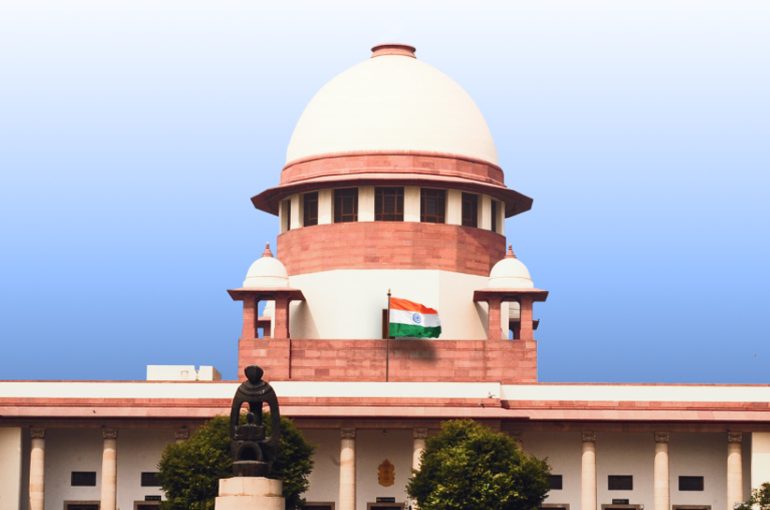THE SEVEN-YEAR SILENCE: WHEN PRESUMPTION OF DEATH MEETS COMPASSIONATE APPOINTMENT

In The Commissioner, Nagpur Municipal Corporation & Ors. v. Lalita & Ors., 2025 INSC 1280, a Division Bench of the Supreme Court of India, comprising Justice Pankaj Mithal and Justice Prasanna B. Varale, delivered a significant ruling on 29 October 2025, clarifying the law surrounding civil death, presumption of death under Section 108 of the Indian Evidence Act, 1872 and eligibility for compassionate appointment. The Court set aside a High Court Order that had erroneously treated the date of disappearance as the date of death for the purpose of providing employment on compassionate grounds.
BRIEF FACTS
Respondent No. 2, Shubham Bawankule, sought compassionate appointment following the disappearance of his father, Gulab Mahagu Bawankule, an employee of the Nagpur Municipal Corporation, who went missing on 1 September 2012. The High Court of Bombay (Nagpur Bench), directed the Corporation to appoint Shubham to a suitable post, treating 1 September 2012 as the date of death.
The Corporation appealed, arguing that under Section 108 of the Evidence Act, a presumption of civil death arises only after seven years from the date of disappearance, unless earlier death is proved by evidence. They contended that Gulab Bawankule should be deemed dead only on 1 September 2019, that he was treated as in service until his retirement on 31 January 2015 and that his family had received full retiral benefits and monthly pension. Therefore, his son could not claim compassionate appointment as the deceased’s employment had already concluded naturally.
ISSUES OF LAW
1) Whether the date of disappearance can be treated as the date of death for the purpose of granting compassionate appointment.
2) Whether receipt of retirement benefits and pension extinguishes the claim for compassionate appointment.
3) What is the proper interpretation of civil death and presumption of death under Section 108 of the Indian Evidence Act, 1872?
ANALYSIS OF THE JUDGMENT
The Supreme Court emphatically held that the High Court erred in equating the date of disappearance with the date of death. The Bench observed that civil death cannot be presumed merely because a person has gone missing; it is only after seven years of untraced absence that the law presumes death, unless there is direct or circumstantial evidence to prove otherwise.
The Court referred to the seminal precedent LIC v. Anuradha (2004) 10 SCC 131, which laid down that the determination of the date or time of death in cases of civil death must rest on evidence, not assumption. The burden lies on the person claiming death to establish it. The declaration of death by a civil court, therefore, only acknowledges that the individual is presumed dead after seven years of disappearance, and does not fix any specific date of death.
In the present case, the Civil Court’s decree dated 11 January 2022 merely declared that the employee was presumed dead but did not specify 1 September 2012 as the date of death. Hence, as per Section 108, the father was presumed dead only on 1 September 2019—the expiry of seven years from his disappearance.
The Court further noted that the family, including the Respondent, had accepted the Father’s retirement and all post-retiral dues, including ₹6,49,000 in benefits and a monthly pension of ₹12,000. Such acceptance amounted to recognition that the employee was alive until retirement, negating the foundation for a claim of compassionate appointment, which is meant to provide immediate financial relief upon the death of a breadwinner in service.
The Bench also criticized the High Court’s directive that the Corporation should directly appoint the Respondent, holding that even if compassionate appointment were considered, the proper course would be to consider the application as per rules, not to mandate appointment outright.
CONCLUSION
The Supreme Court’s Judgment reinforces a clear doctrinal boundary between disappearance and presumption of death. Compassionate appointment, an exception to general recruitment norms, is intended for cases of actual death while in service, not for instances where an employee retires while being treated as alive and receives all benefits.
By setting aside the High Court’s Order, the Court affirmed that legal fictions like civil death must operate strictly within their statutory framework and that the seven-year rule under Section 108 of the Evidence Act cannot be diluted by sympathy or convenience. The Court, however, left a window open by permitting the authorities to consider the Respondent’s employment independently—thus blending legal rigidity with a measure of human equity.
SARTHAK KALRA
Senior Legal Associate
The Indian Lawyer & Allied Services
Please log onto our YouTube channel, The Indian Lawyer Legal Tips, to learn about various aspects of the law. Our latest Video, titled “Startup Funding Laws in India Explained | Legal Guide by Advocate Sushila Ram Varma|” can be viewed at the link below:





































Leave a Reply